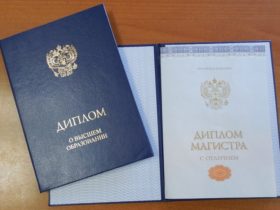What is protected and under which rules?
“Trademarks” are designations that individualize goods or services of one undertaking and distinguish them from those of others; legal protection in Belarus arises through registration and is governed primarily by the Law of the Republic of Belarus “On Trademarks and Service Marks”. The National Center of Intellectual Property (NCIP) is the competent office. Belarus participates in the Madrid System for the International Registration of Marks, administered by WIPO; therefore, international applications and subsequent designations may request protection in Belarus by indicating “BY”.
The domestic regime is complemented by regional instruments. Since April 26, 2021 the Treaty on Trademarks, Service Marks and Appellations of Origin of Goods of the Eurasian Economic Union (EAEU) has been in force, creating an additional route to regional protection that coexists with national and Madrid routes. Belarus ratified the EAEU treaty in January 2021.
How does a Madrid designation “BY” proceed from filing to protection?
Under the Madrid Protocol, an international application (or a subsequent designation) is examined by WIPO for formalities and then transmitted to each designated office, which must either grant protection or notify a refusal within a prescribed period. Belarus has made a formal declaration under Article 5(2)(b) of the Protocol that extends the refusal period to 18 months. In practice this means that, counting from WIPO’s notification to NCIP, protection in Belarus is either confirmed tacitly upon expiry of that period or a provisional refusal is issued within it.
NCIP’s public guidance on international registration confirms the Madrid flow, including that an international application can be based on a basic filing or basic registration and that the standard examination period for a designation is 12 months unless a member has declared an 18-month period—Belarus has.
Once protection is granted, the mark is recorded in the Belarus register. The registration term is 10 years from the filing date, renewable indefinitely for ten-year periods, with a six-month grace period for late renewal upon surcharge.
Which fees and which language apply?
The Madrid System works with a schedule of individual fees set by each member. WIPO’s current table indicates a fixed individual fee for Belarus, and parties should consult WIPO’s running “Individual Fees under the Madrid Protocol” page when budgeting because amounts are periodically updated and shown in Swiss francs (CHF). As of the most recent update, Belarus appears with a flat individual fee entry.
What happens if NCIP issues a provisional refusal—and in what time must one react?
A “provisional refusal” is a notification that protection is denied in the territory for specified reasons (absolute or relative grounds) unless overcome within an office-set time limit. Under WIPO’s harmonized rules, holders must be given at least two months to respond; local time limits vary by member. For Belarus designations, practical guidance reflects that the response period is three months from the holder’s receipt of the refusal, with possibilities to request extensions—commonly in total up to 18 months—provided the requests and fees are timely. A local representative must be appointed to respond, and the response is filed in Belarusian or Russian.
What are use requirements and the risk of non-use cancellation?
“Non-use cancellation” is a termination of protection due to failure to use the mark for a statutory period without good reason. Belarusian law provides that legal protection may be terminated for non-use during any continuous three-year period after registration, upon request to the Supreme Court; the statute clarifies what counts as use, including use with minor immaterial alterations or by licensees. Courts and practice confirm that actions must demonstrate real use in Belarus in relation to the registered goods or services.
A practical outcome is that holders of international registrations designating Belarus should prepare evidence of use targeted to Belarus—such as invoices, labels, advertising and shipping documents—tracking the first use date and continuity to meet the three-year standard. Although WIPO administers the international registration, use must be assessed under Belarusian law in the Belarusian market.
Which classes, how many goods, and which specification strategy work best?
Belarus uses the Nice Classification. Applications may cover multiple classes; nevertheless, prudent practice is to keep the specification coherent and substantiated by intended use and business plans, because overly broad lists raise the risk of relative-grounds citations and, later, non-use attack against unexploited goods/services.
What are the typical timeframes from designation to grant?
On paper, Madrid members decide within 12 months, or 18 months if declared; Belarus has made the 18-month declaration. In real practice, straightforward cases can be tacitly protected within that period; complex cases may involve office actions and appeals that extend timelines. Holders should track all deadlines via Madrid Monitor and ensure local counsel is engaged promptly upon any provisional refusal to meet the three-month response term.
What are the main costs?
The total budget comprises (i) WIPO fees for an international application or subsequent designation, including the individual fee for Belarus payable in Swiss francs; (ii) local representative costs for responding to refusals or recording licenses/assignments; and (iii) renewal fees every ten years. Because WIPO’s schedule is updated, holders should consult the current WIPO “Individual Fees” table at the planning stage and at the time of filing or renewal.
How are disputes and appeals handled?
If legal protection is denied or later challenged, disputes progress through the Board of Appeals at NCIP and, thereafter, the Supreme Court’s Judicial Board for Intellectual Property. The law details appeal time limits and the forms of relief available, including invalidation of protection (recognition of the granting of protection as invalid) and termination for non-use. The NCIP clarifies that within six months of the Board’s decision, judicial appeal is available. Invalidation on relative grounds generally must be sought within the time limits set by the law, while termination for non-use is available after the three-year period.
A modest but useful recommendation
Before designating Belarus, prepare a Belarus-specific use plan for the first three years after grant and allocate resources to collect localized proof (labels, invoices, logistics papers, advertising impressions targeted to Belarus). This single internal discipline dramatically reduces the probability of a successful non-use action, which in Belarus may be brought in the Supreme Court after the three-year period.
Conclusion: why engage experienced counsel and how Law firm “Economic Disputes” can help
Madrid protocol filing for Belarus (designation BY) is straightforward only in appearance; the decisive issues arise in refusal management, appeals, and post-grant enforcement, especially around three-year non-use, invalidation windows and the five-year Madrid dependency. Correct choice of route (Madrid, national, or both), meticulous deadline control and local procedural compliance will determine outcome and cost.
Law firm “Economic Disputes” advises and represents clients at all stages—from clearance and drafting compliant specifications in Belarusian practice to responding to NCIP refusals, appearing before the Board of Appeals and litigating before the Supreme Court’s IP Board. Our firm’s public record highlights 15–25 years of court experience among attorneys, over 100 positive client reviews, and a broad international partner network. The firm is led by Sergey Belyavsky, who worked 20 years in economic courts, including 10 years as a judge, and now serves as a recommended arbitrator of the ICAC at the Belarusian CCI; we maintain offices in Minsk (Kulman St., 11) and Grodno (Kalyuchinskaya St., 23).
If you plan to file a Madrid designation for BY, face a provisional refusal, or need to shore up existing protection against non-use or invalidation, send us a short description of your mark, goods or services and current deadlines via the contact page of our website. We will assess the status in Madrid Monitor, outline the feasible responses under Belarus law, and propose a procedural plan aligned with your commercial priorities.







Оставить ответ